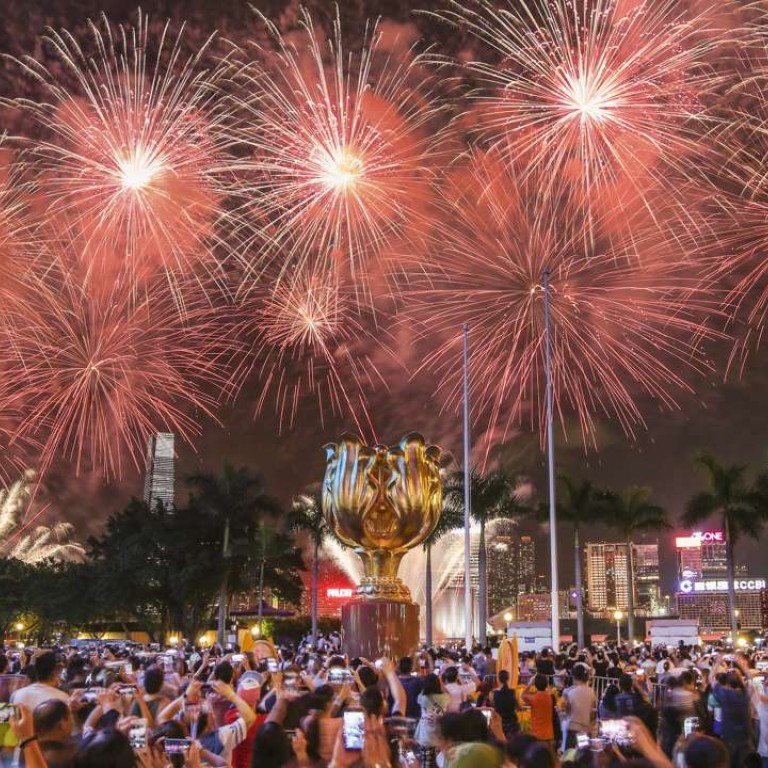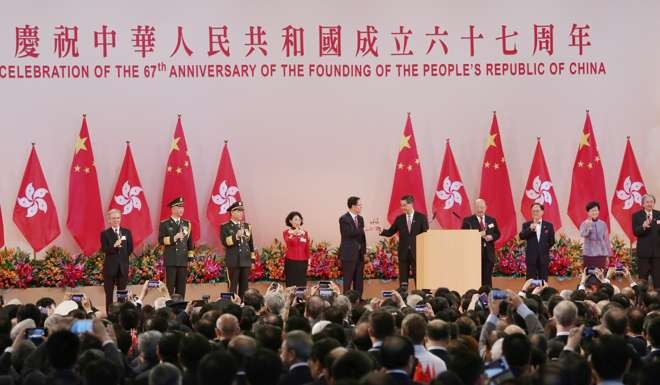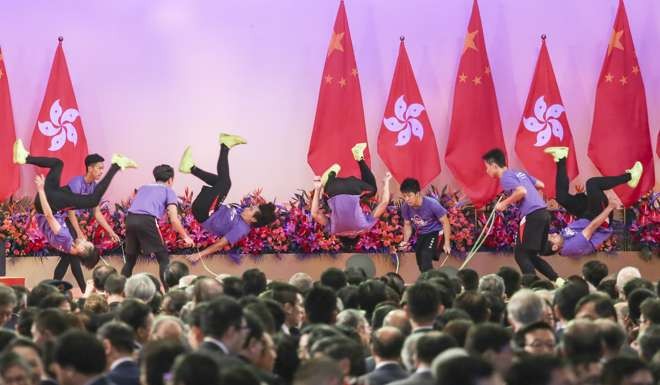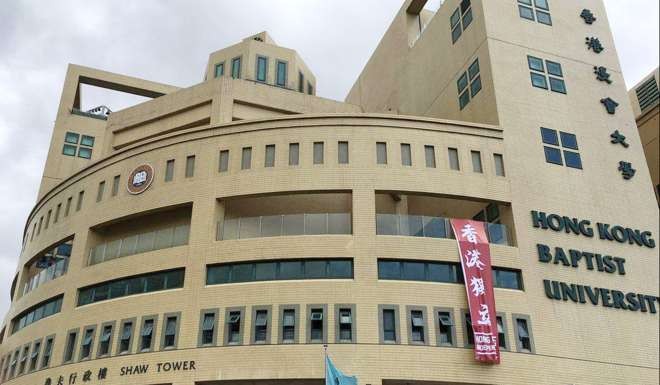
National Day: Hong Kong leader says city must ‘safeguard’ beneficial ‘one country, two systems’ arrangement
Leung Chun-ying spoke at reception to mark National Day on Saturday, as independence banners were put up at eight universities; they were later removed
Delivering his final October 1 speech in his current term, Chief Executive Leung Chun-ying described the guiding political principle as the “most beneficial and most practical arrangement” for Hongkongers.
“It is necessary for everyone in the community to safeguard ‘one country, two systems’,” Leung said.
Amid the rise of localism as shown in the Legislative Council election results last month, Leung said the kinship between Hong Kong and the mainland was deep, adding that 21,000 marriages registered in Hong Kong in 2013 involved a mainland spouse – making 38 per cent of the city’s marriages that year.
“The [Hong Kong] government has always encouraged young people to learn more about the country,” Leung added.

Young people took to the stage to perform at the Convention and Exhibition Centre in Wan Chai, where the reception was held. But outside, all eight universities saw impromptu displays of banners printed with “Hong Kong Independence”, defying authorities with demands for the city to split from the mainland. The banners hung outside major university buildings were later removed.
Professor Lau Siu-kai of the Chinese Association of Hong Kong and Macau Studies, a mainland think tank, said: “I believe the central government will be unhappy about [displaying these banners on National Day].”
The pro-independence movement in the city, Lau added, was mainly limited to young people.
Last month, seven lawmakers proposing self-determination were elected to the Legislative Council.

Another issue that stole the limelight of the event celebrating the birth of the People’s Republic 67 years ago was the election of the chief executive next year.
Two of his potential rivals, Chief Secretary Carrie Lam Cheng Yuet-ngor and Financial Secretary John Tsang Chun-wah, were seen chatting with and toasting guests at the reception.

A spectator at the event, Yu Hong, 57, from Beijing, said the ceremony reflected the bond between China and Hong Kong. “I love Hong Kong. [This ceremony] shows how friendly we are with Hong Kong,” he said.
The weather later turned fine, allowing the celebratory fireworks display to proceed over Victoria Harbour in the evening.
In a commentary dedicated to National Day, state-run agency Xinhua put the bridge from Hong Kong to Macau and Zhuhai on a par with the G20 summit in Hangzhou, space laboratory Tiangong-2 and the national high-speed rail network as four “earth-shattering” events since the start of the year.
It described the bridge – the Hong Kong part of which is facing construction delays – as a new record for the country in extending its reach like never before.

